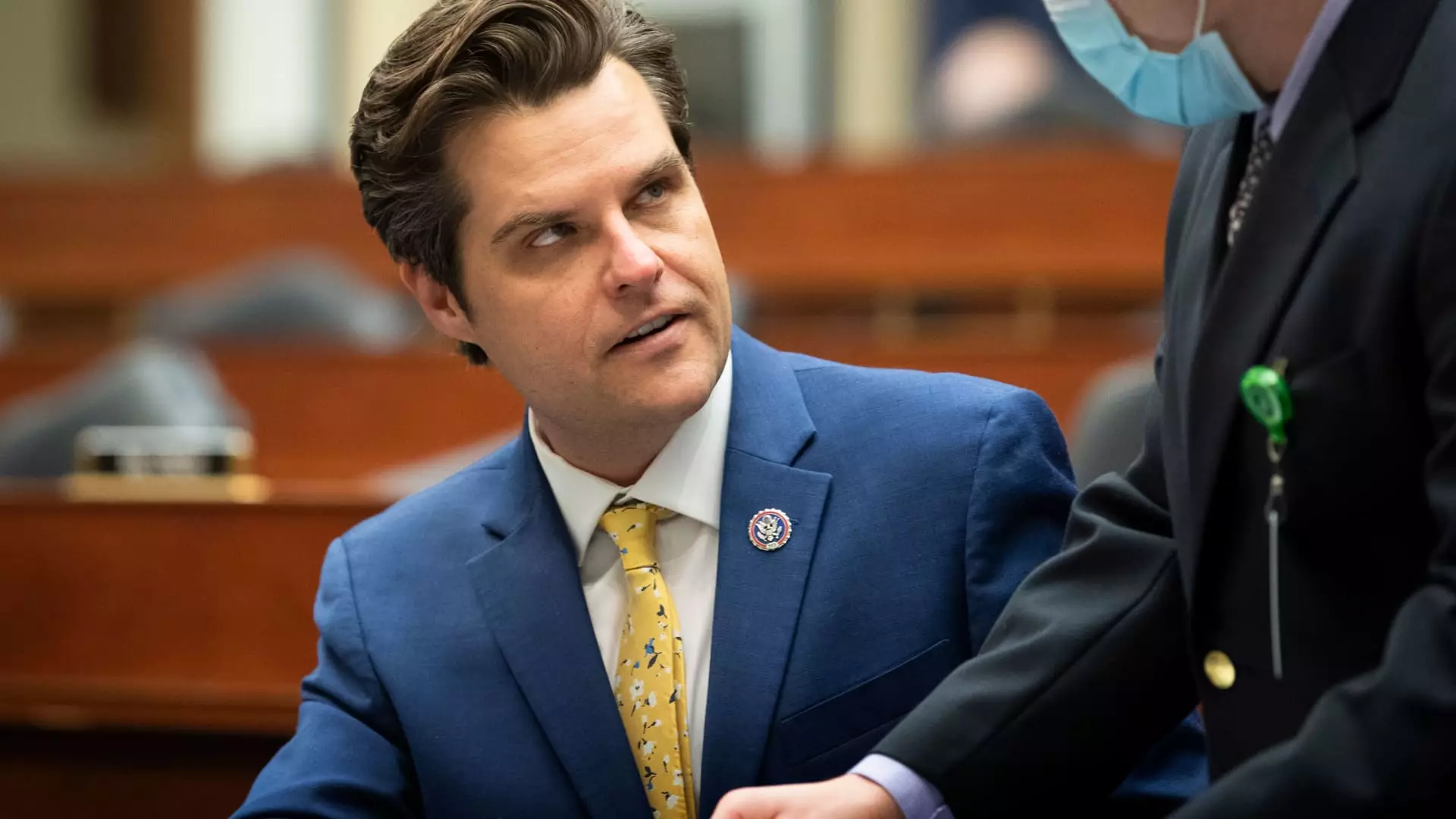The recent announcement of the House Ethics Committee’s decision to release its findings on the investigation into former Republican Representative Matt Gaetz has raised eyebrows and ignited debate. With allegations of sexual misconduct and drug use hanging over Gaetz, the upcoming report promises to stir an already contentious political environment. This article aims to scrutinize the significance of this development and its broader implications.
The ethics probe targeting Gaetz stems from accusations that surfaced amid a turbulent political landscape. Although the Department of Justice (DOJ) closed an earlier investigation into sex trafficking allegations without filing charges, the House Ethics Committee reinitiated its own inquiry in May 2023. The committee’s scope included not just sexual misconduct, but also claims of illicit drug use, acceptance of improper gifts, and possible obstruction of government investigations. This multifaceted approach indicates a serious concern about ethical compliance among elected officials.
Gaetz’s initial resignation from Congress added complexity to the investigation. Appointed briefly as a candidate for U.S. attorney general under then-President Donald Trump, he stepped down under the weight of various allegations, which he has consistently denied. The panel’s recent decision to go forward with the report after a previous deadlock signifies a shift in how they perceive the public’s right to know versus the ramifications of releasing findings on a former member of Congress.
The impending release of the report has prompted strong reactions from Gaetz himself. In a statement posted on social media, he unequivocally denied ever engaging in sexual relations with anyone under the age of 18, aiming to counter the claims that have circulated in the media. Furthermore, Gaetz described his youthful indiscretions—his partying and relationships—as embarrassing but not criminal. This defense strategy indicates his intent to frame the narrative, perhaps to garner public sympathy and align himself with a more relatable image.
On a broader scale, House Speaker Mike Johnson’s opposition to the report’s release underscores the political ramifications of this case. Johnson’s argument that publishing the findings could set a concerning precedent points to the fragility of political norms in today’s highly polarized atmosphere. Both Democrats and Republicans have varied approaches when dealing with allegations against their own members, and this situation exposes the delicate balance they must maintain.
The decision to release the report brings up critical questions about ethics in Congress and the accountability of elected officials. Historically, the Ethics Committee has issued reports on members even after they have vacated their positions—in a notable case from 1987 concerning former Representative Bill Boner. However, the release of such findings after resignation raises key concerns about fairness, particularly for individuals like Gaetz who argue they no longer have the opportunity to defend themselves effectively.
Moreover, this situation reflects larger societal challenges regarding how allegations of misconduct, especially those involving sexual improprieties, are handled. As public consciousness around these issues has evolved, so too has the expectation for transparency and accountability. The Ethics Committee’s actions will likely set the tone for how future allegations are treated and whether the reporting processes need reform.
As the report’s potential release looms, attention will naturally pivot to what the findings reveal and how they will affect Gaetz’s standing in the political arena. Despite his vehement denials, the fallout from this investigation could influence his political future and that of the Republican Party at large. In different contexts, the ramifications could extend beyond Gaetz, reshaping the conversation surrounding misconduct in Congress and prompting discussions on reforms to ethics protocols.
The House Ethics Committee’s decision to release its report on Gaetz’s investigation opens the door to renewed scrutiny of congressional ethics. It challenges both the institution and the public to reckon with questions of accountability in leadership. As the narrative unfolds, it remains to be seen how this case will impact perceptions of integrity within political corridors, as well as the future trajectory of the involved parties.

Leave a Reply